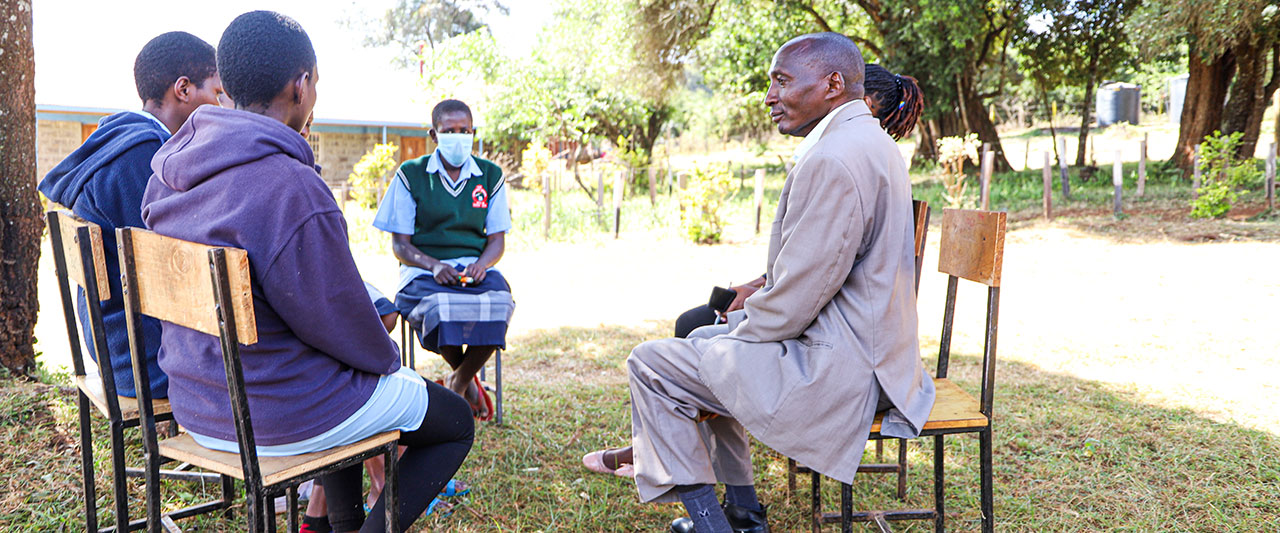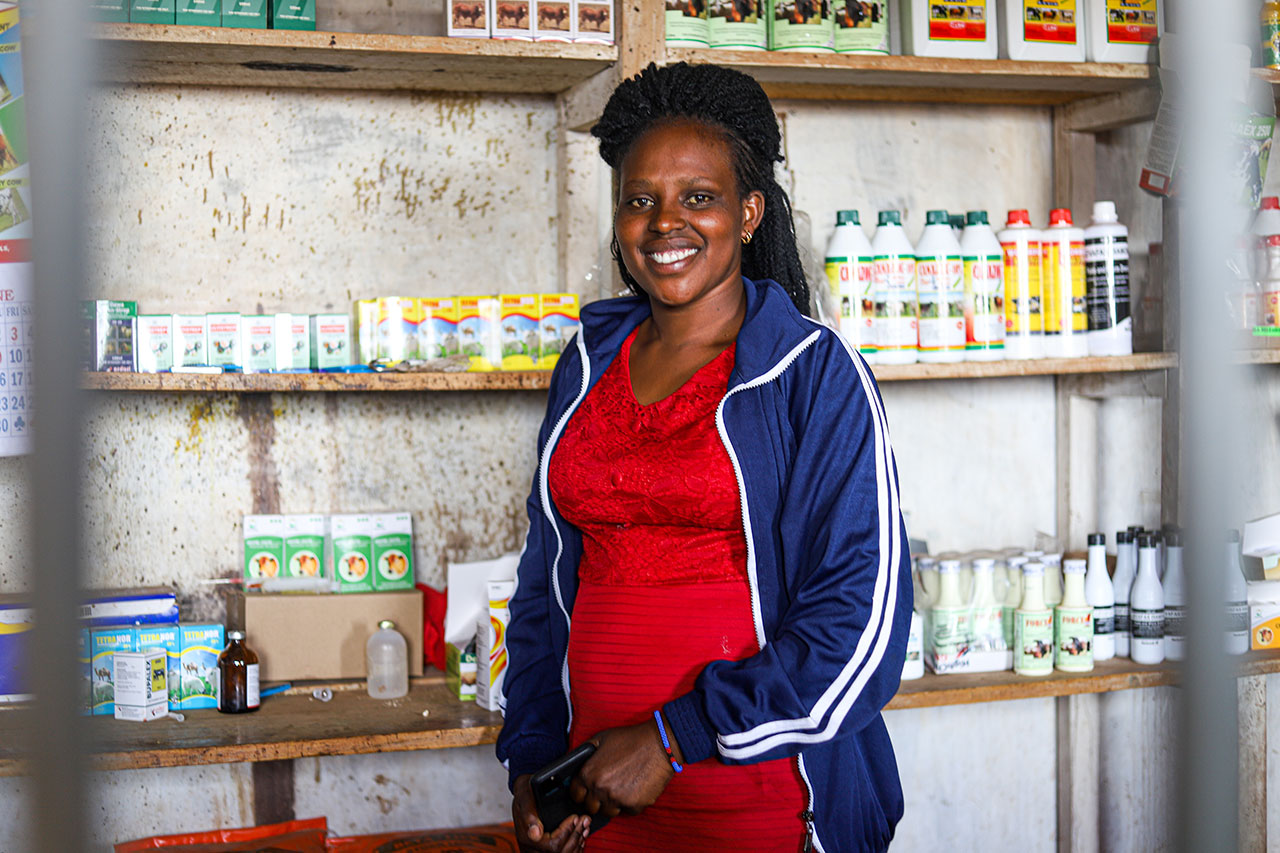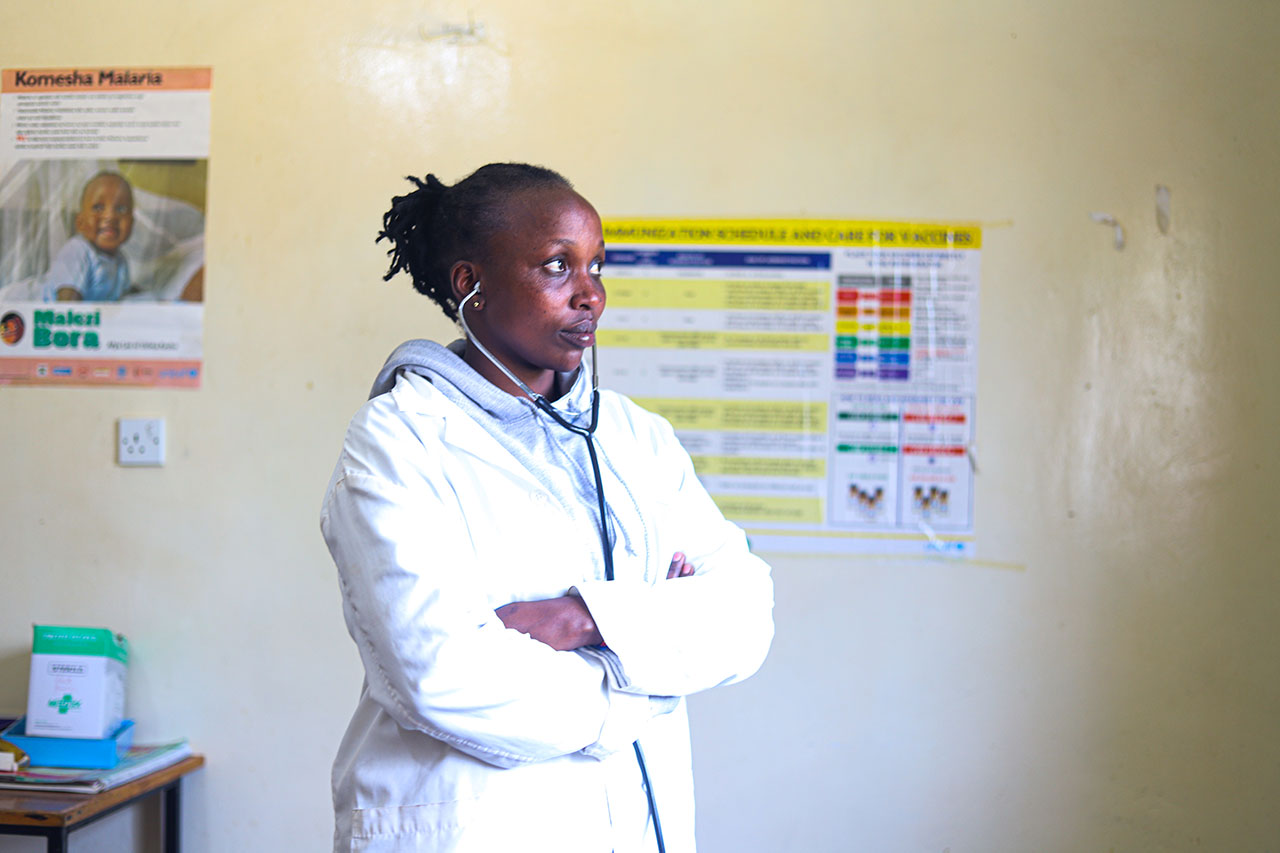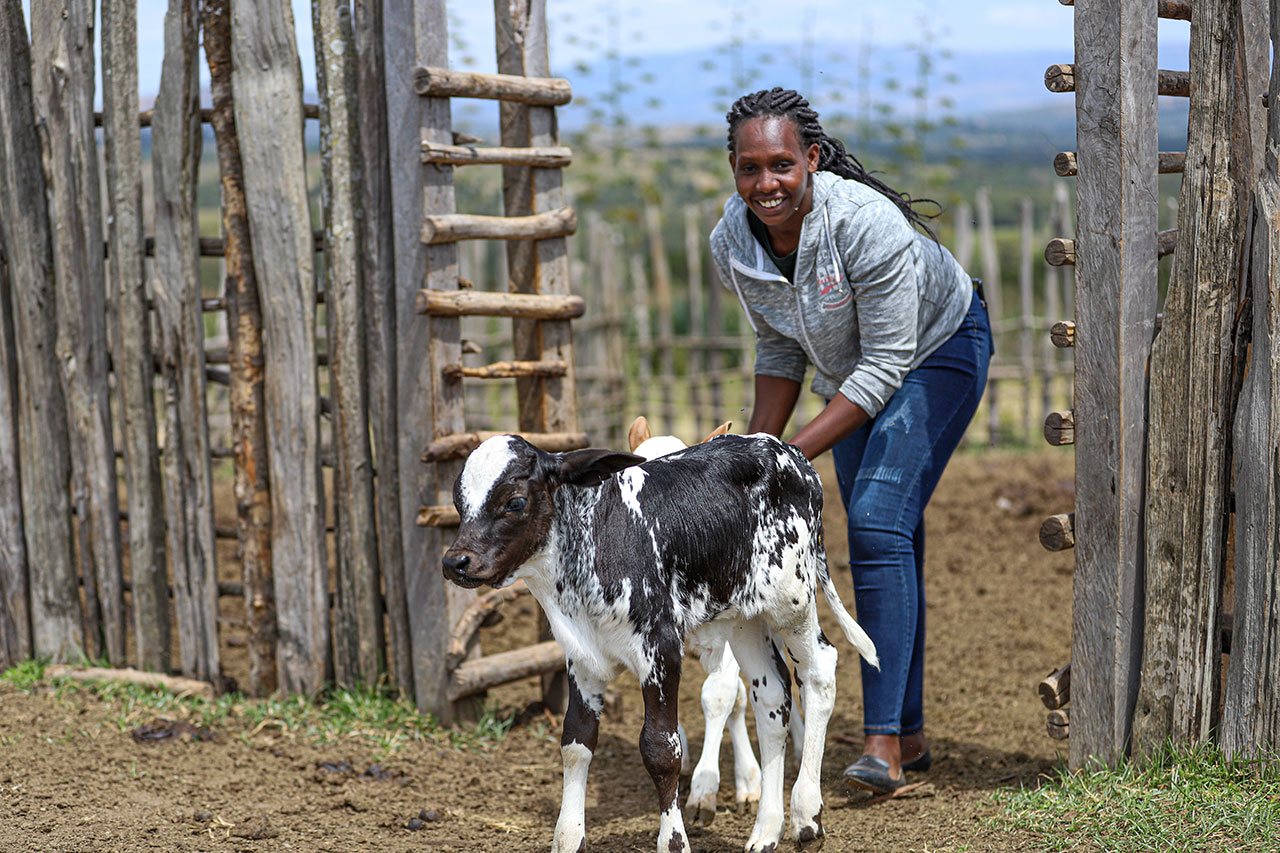In the heart of Narok county, in the southwestern region of Kenya, Amos Simpano envisions a society vastly different from the conservative and patriarchal nomadic community he grew up in.
“I didn’t realize there was a different way of doing things until I traveled around the country,” he says. “We had normalized trampling on girls’ and women’s rights to the point where it wasn’t seen as a problem until I witnessed how others treated women and girls.” Simpano is the CEO and director of Entashata, a community-based organization he co-founded in 2012 to build gender equity with holistic approaches. Entashata strives to bridge gaps in education, women’s rights, and reproductive health in his community in Loita. The organization’s commitment to education resulted in an annual campaign to enroll boys and girls in schools, boasting over 50 girls supported completing their secondary education.
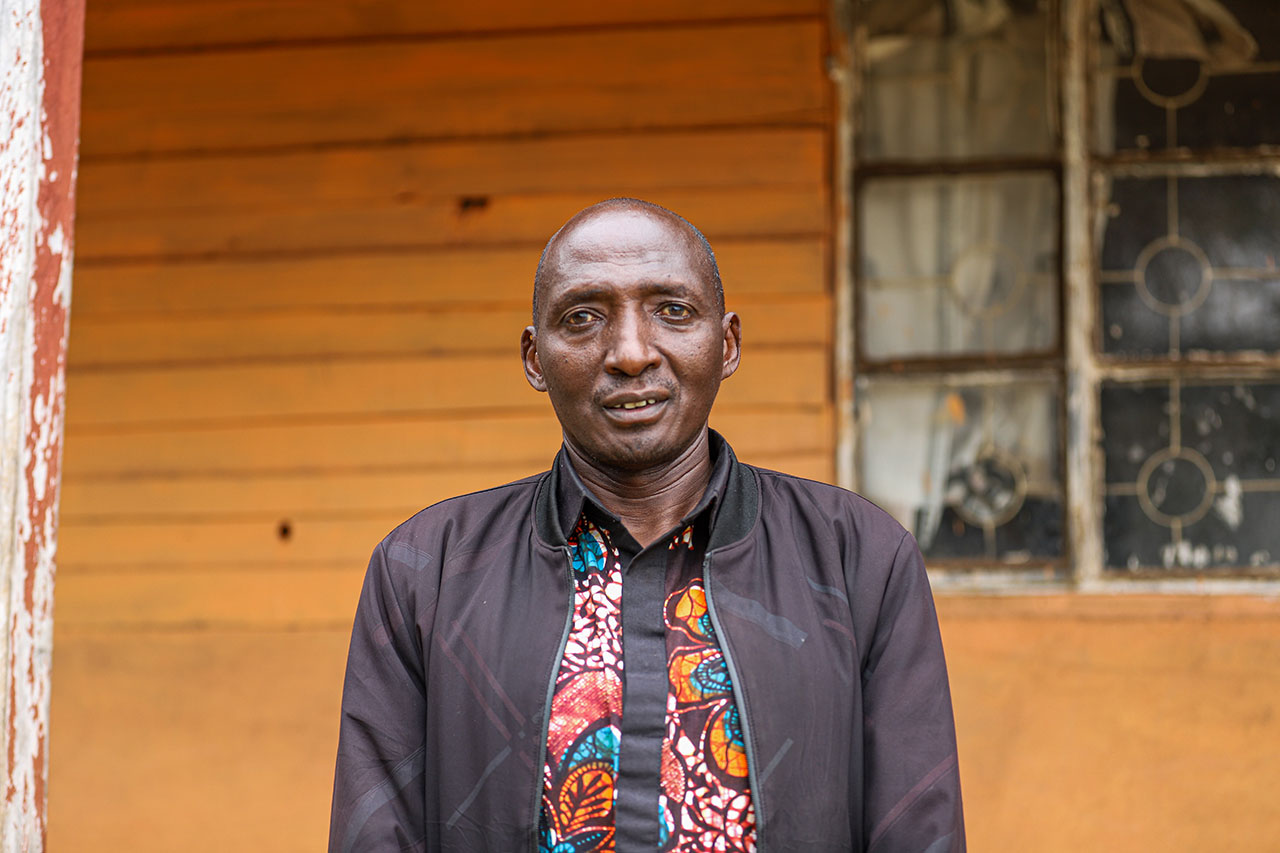
The images here, photographed by Esther Sweeney for Ipas, give a close-up look at the people and local organizations involved in this project as it was unfolding.
Now a second-time Ipas Collaborative Fund recipient, Entashata used their initial grant in 2022 to launch the Nyumba Kumi Families project. “Nyumba Kumi” which means ‘ten households’ in Swahili, is a phrase used widely in Kenyan society to describe anchoring power and control over affairs at the household or community level—the very essence of Entashata’s way of working. Ipas’s no-strings-attached approach to funding allowed Entashata to tailor solutions to their community’s needs. The Nyumba Kumi Families initiative aimed to break the stigma around family planning, enhance access to health and socio-economic rights among Loita Maasai Pastoralist women in Narok County, and combat sexual and gender-based violence.
The project also provided sexual and reproductive health and sexuality education for youth.
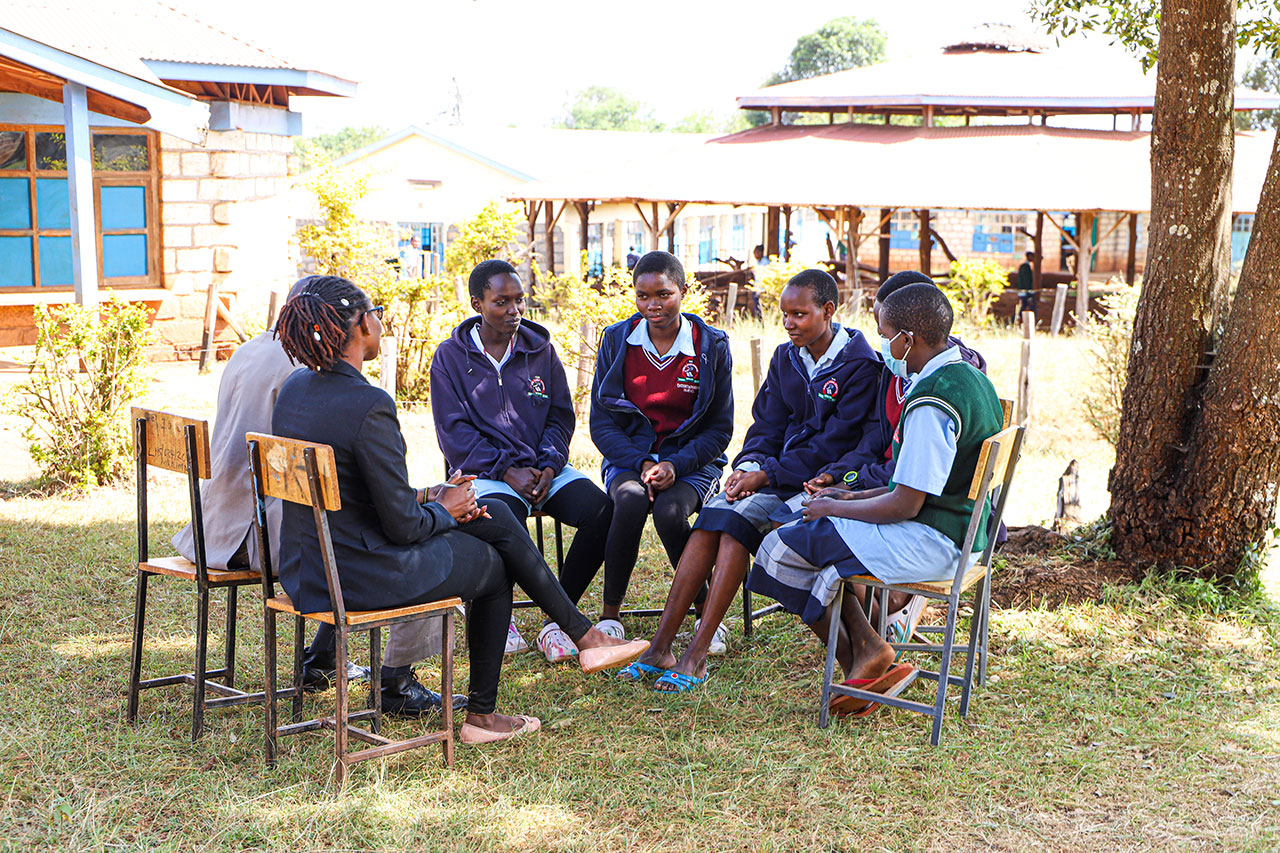
“The goal was to empower community members with knowledge and skills to address their needs at the village level, aligning with our mission of fostering sustainable initiatives and capacity building. The involvement of youth, both in and out of school, further contributed to reaching vulnerable groups, addressing stigma, discrimination, and unmet needs for family planning services,” says Simpano.
Amos Simpano and his colleague, Hellen Topisia, chat with girls from Loita High School on the school grounds. Secondary school enrollment was one of Entashata’s flagship projects.
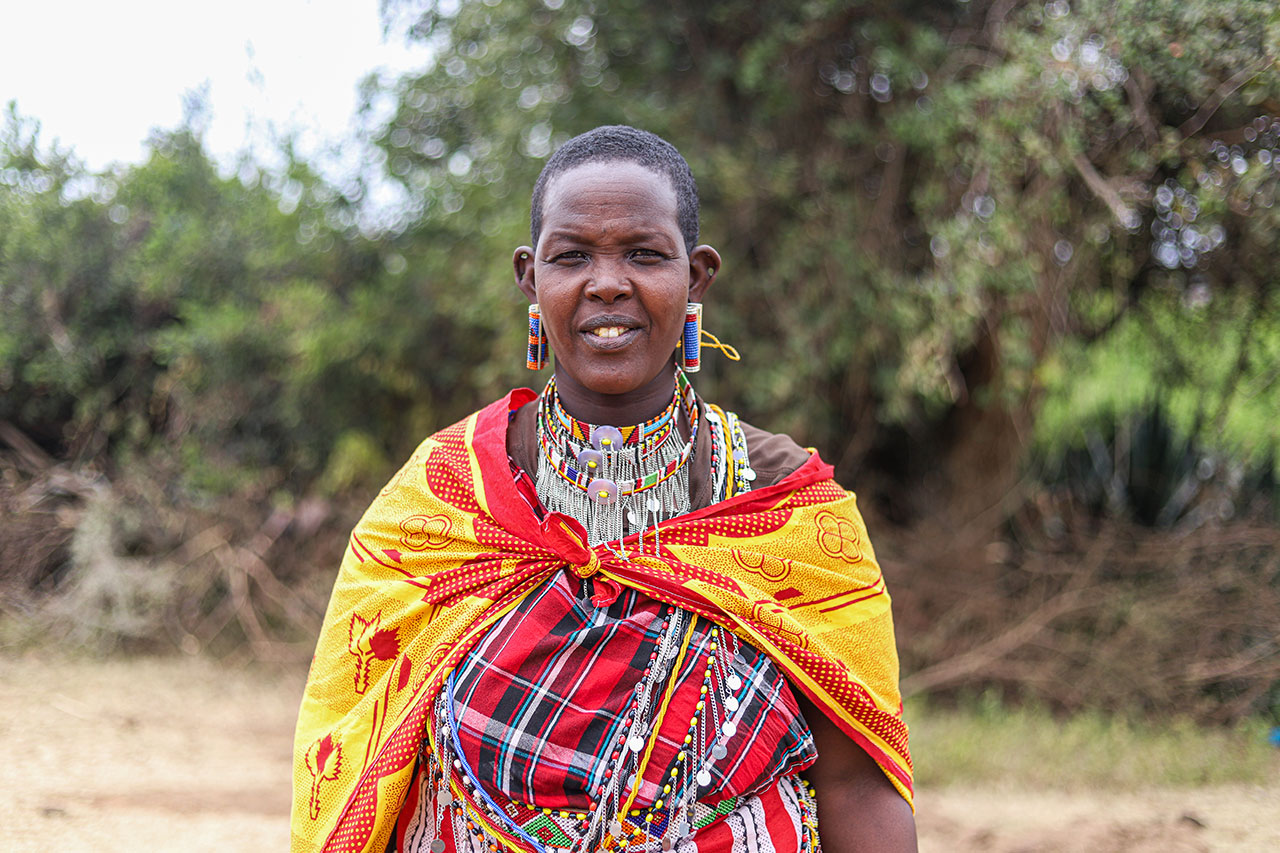
Noorimrim Nairoto (Mama Kijiji) has attended Entashata trainings on reproductive health. “The training really opened my eyes to issues that I did not know of before. I have preached what I was taught to my fellow women in the community because I want them to also benefit from this knowledge. I have also learned about my rights and where to seek help from in case I am in trouble.”
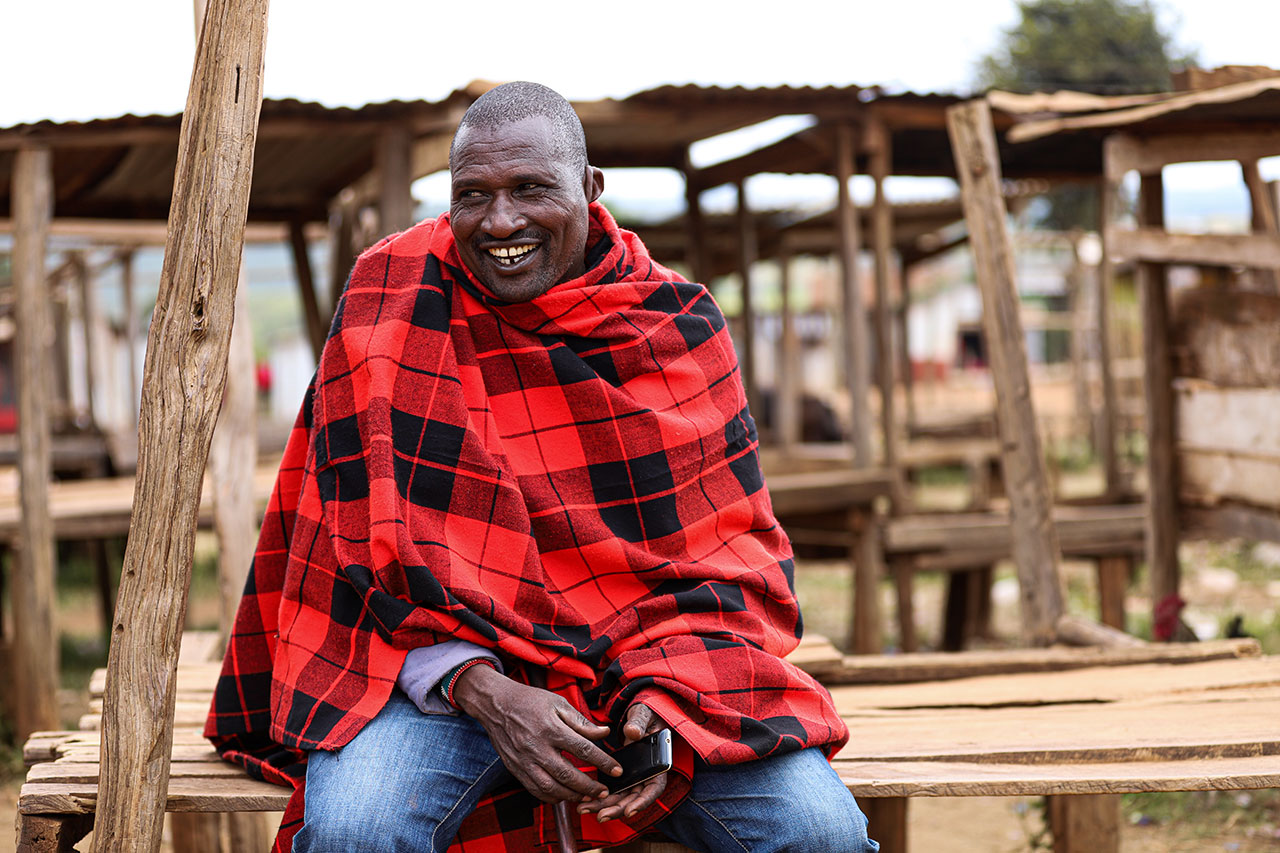
Lolturoto Poyio says learning more about gender-based violence and family planning has benefitted the community. “Learning about GBV and family planning has really enlightened us. I have learnt what family planning is and what its benefits are. I have also learned about the importance of dialogue at home instead of physical violence. This project has really benefitted the community.”
One success: Since the project began in March 2022, Entashata has seen a substantial increase in women choosing long-term contraceptive methods. In total, 329 women selected their preferred family planning services through the project, surpassing the project’s goal by 110 percent. Entashata achieved this by creating a referral process that links existing health facilities and village-based community change champions who advise women where they can go for family planning.
“Our long-term good relationship with the community, coupled with other [efforts] like linking girls for sponsorship to secondary education, laid the ground for quicker reception of our interventions,” Simpano explains.
women selected their preferred family planning services through the project, surpassing the project’s goal by 110%. Entashata's long-term good relationship with the community was instrumental to this success
Climate change and gender-based violence
In this arid region, prolonged drought brought on by climate change has disrupted the pastoralist lifestyle of many communities. As men move their livestock in search of pasture and water, women stay behind and are sometimes forced to walk long distances for food, water, and other necessities. These women face an increased risk of sexual violence as a result.
Entashata tackles the nexus of climate change and gender-based violence by offering training in alternative income-generating activities and fostering women’s groups for savings and loans. This support encompasses diverse activities such as beekeeping, organizing village saving and loan groups, and using annual maize harvests to establish initial capital. The organization also played a key role in establishing a community tap, improving water accessibility and ensuring safe drinking water.
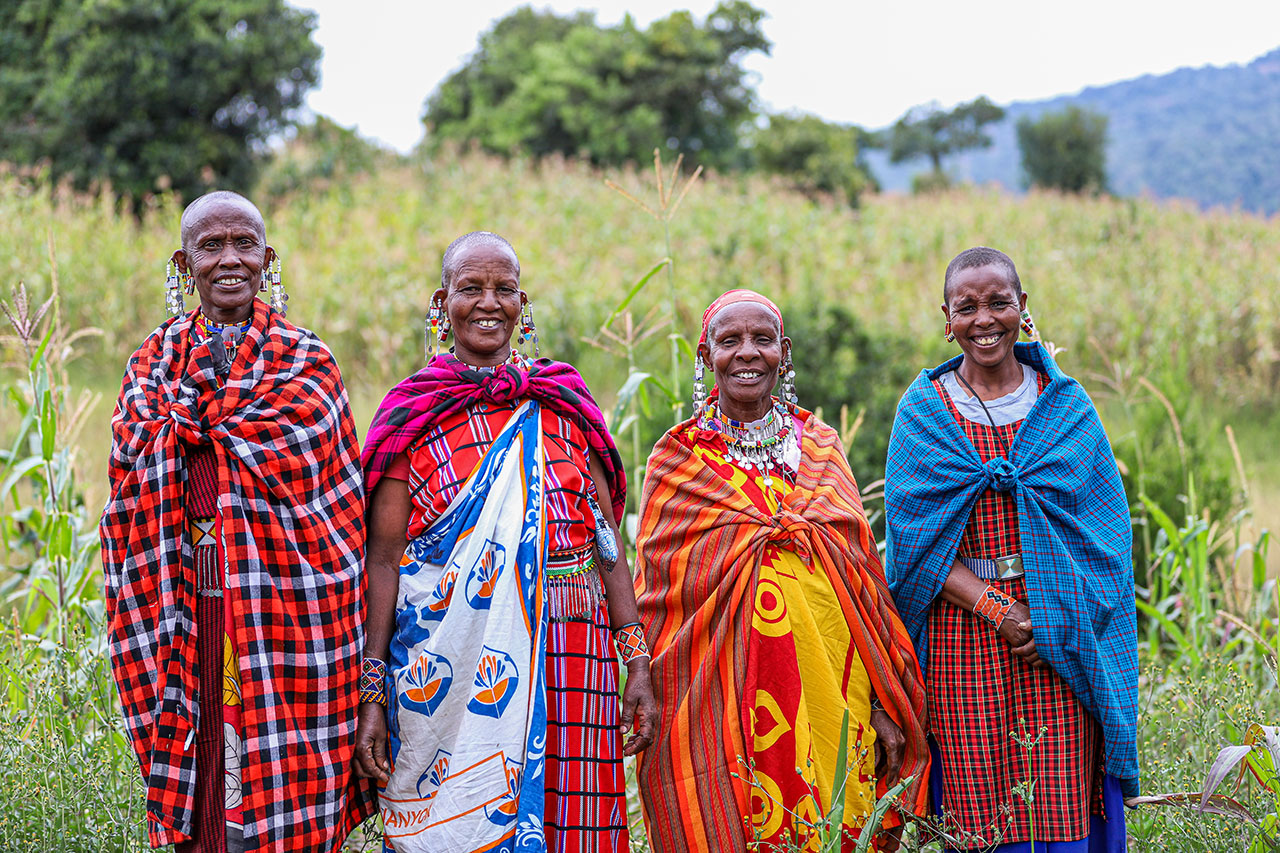
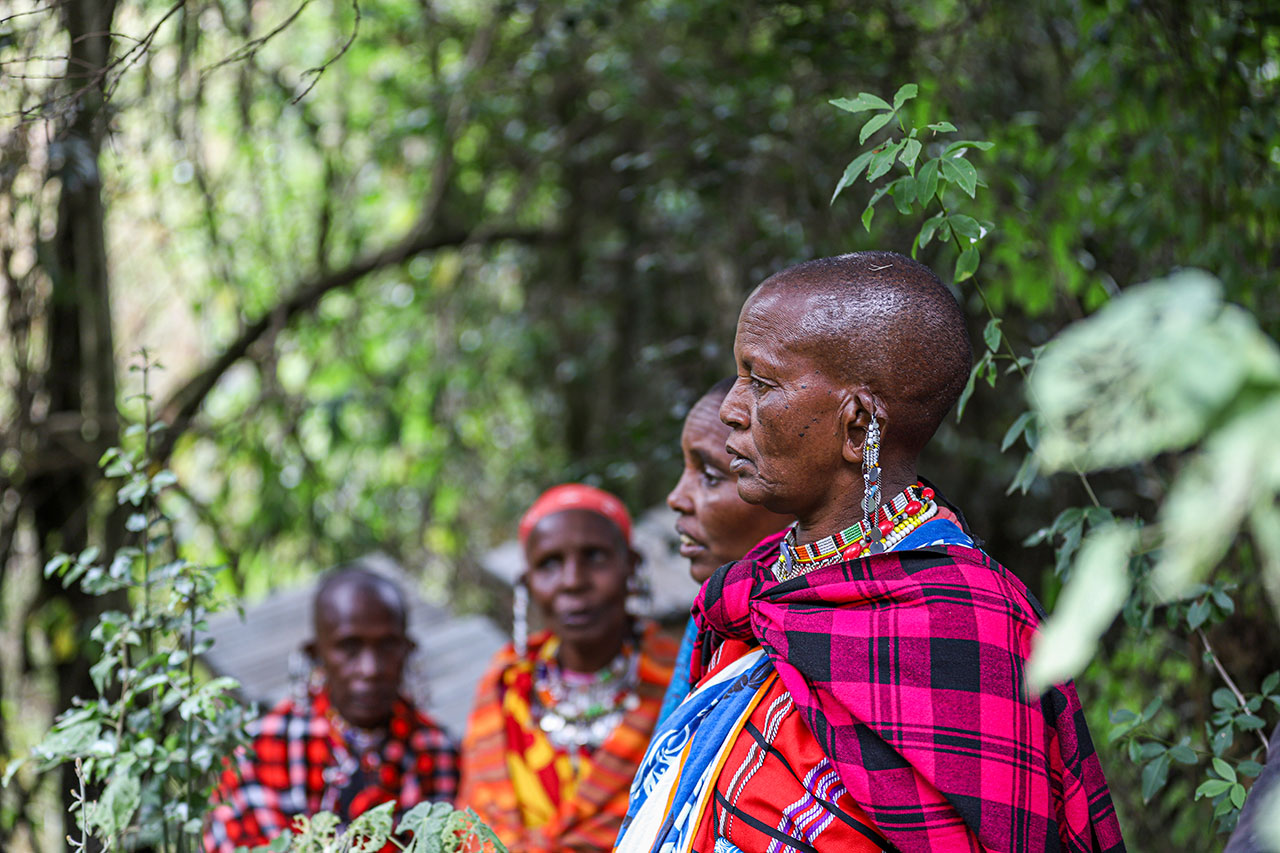
The women of the beehive project stand near the hives. Seeking to empower themselves, women approached Entashata for help and started the beehive project. They now have a bank account where they keep all the proceeds from the honey they sell.
“Through this project we have become empowered and independent. From the income we have gotten we have been able to help the needy and sponsored two children through school.”
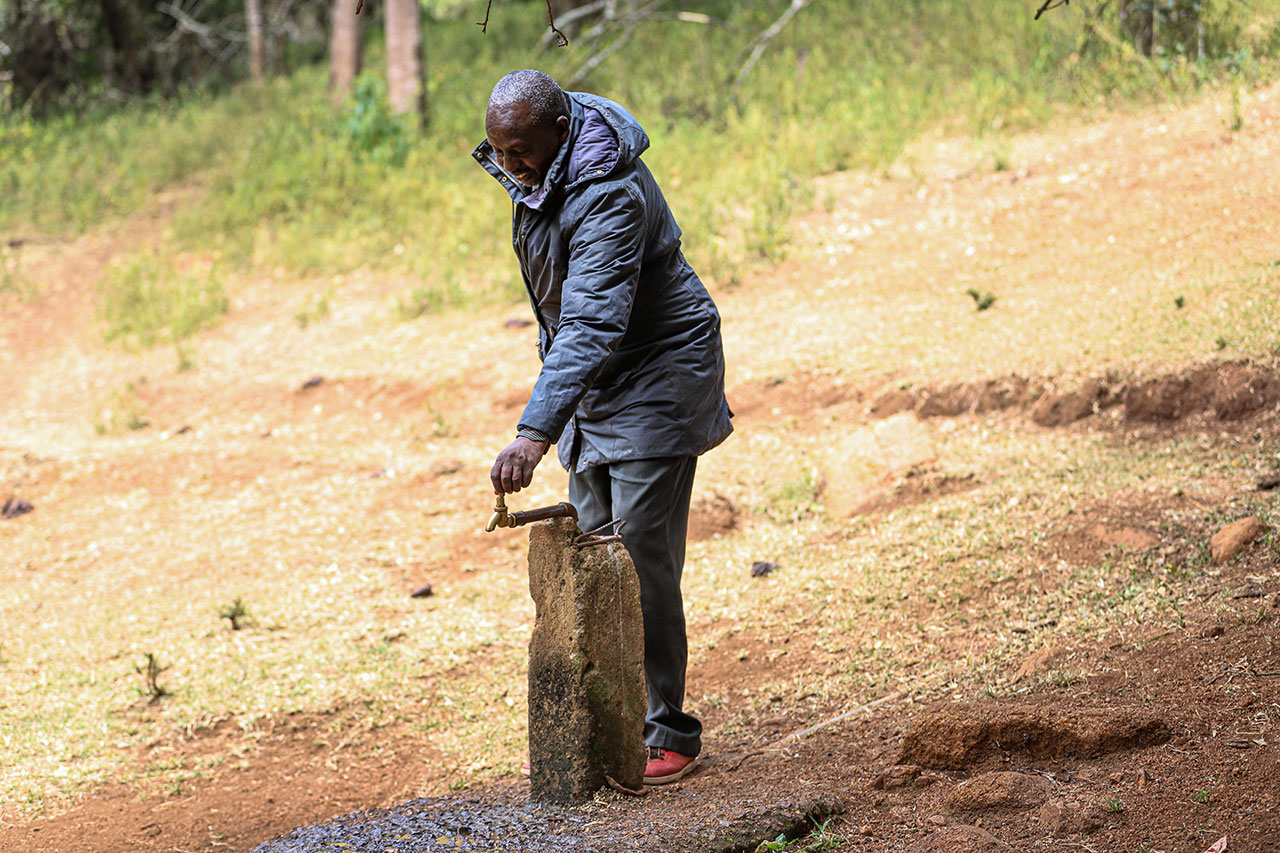
Phillip Simpano, Entasekera area Chief shows the community tap that was installed as part of the water project. “Before this water project, the villagers would drink dirty water because the source of the water was not protected. Now the members of the community can drink the water as it is clean and use the water for other chores at home.”
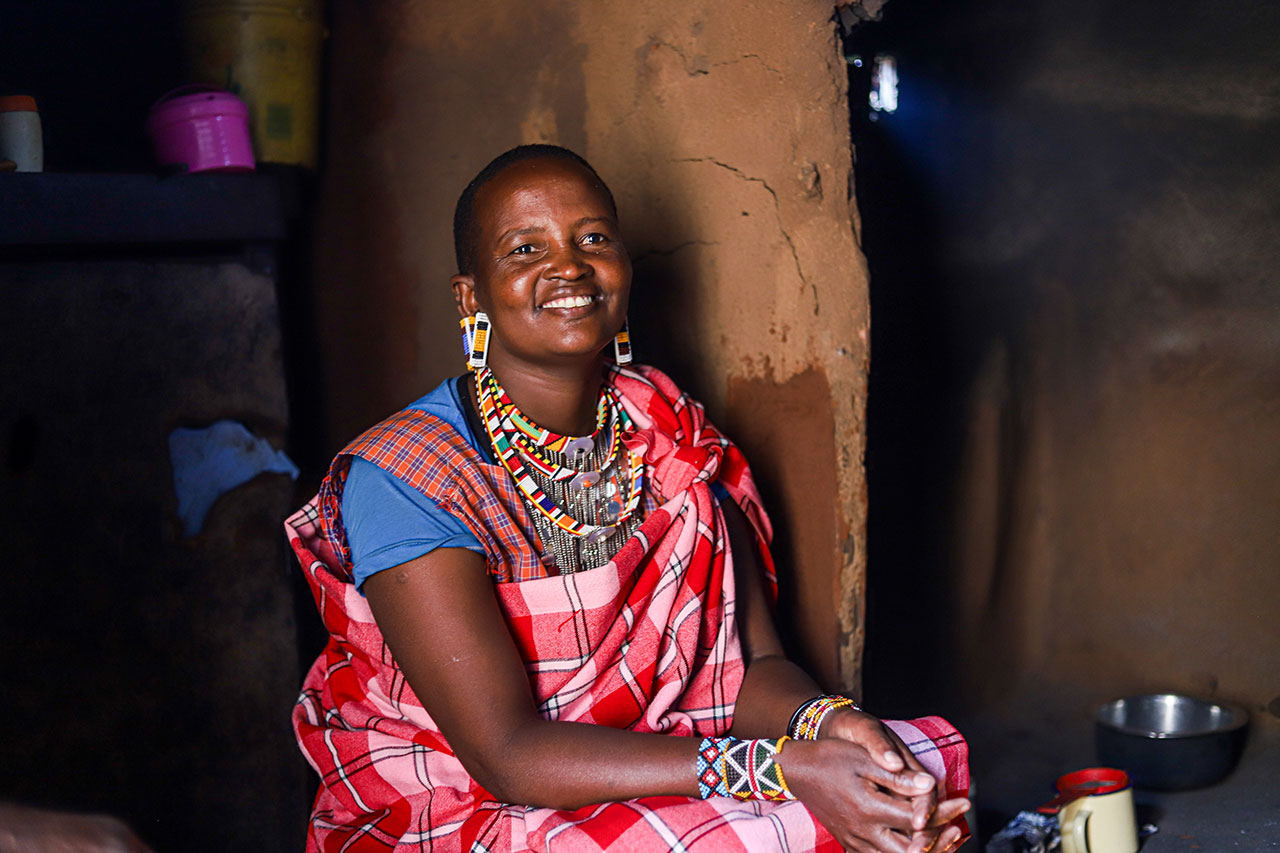
Normejooli Munka a community member who lives near the water source uses the water for cooking and cleaning in her kitchen. “I am so grateful and happy that the water project came. The water is clean for drinking and use at home. I now have time to take care of my business instead of spending almost the whole day walking to fetch water.”
A partnership like no other
Recipients of Ipas Collaborative Fund grants become Ipas’s partners in reproductive justice, and the support and expertise Ipas provides its grantees goes beyond the usual grant program offerings. Simpano acknowledges the instrumental role the Ipas Africa Alliance team played in equipping Entashata’s office, in helping them set up financial systems and staff their programs, and in planning and rolling out sexual and reproductive health rights and gender-based violence programs.
“Our office is very small, very rural, it’s just one room. People always wonder how such a small office can have such a big impact on the community, as that’s evident for all to see. It’s our partnerships with organizations like Ipas which have contributed immensely to our impact,” he says.
Gonzaga Ogambi, a community engagement manager with the Ipas Africa Alliance who manages the Collaborative Fund, adds,
“Partnering with small but powerful community-based organizations like Entashata is Ipas’s strategy with the Collaborative Fund—we know we’re expanding our impact through the amazing work they’re doing.”
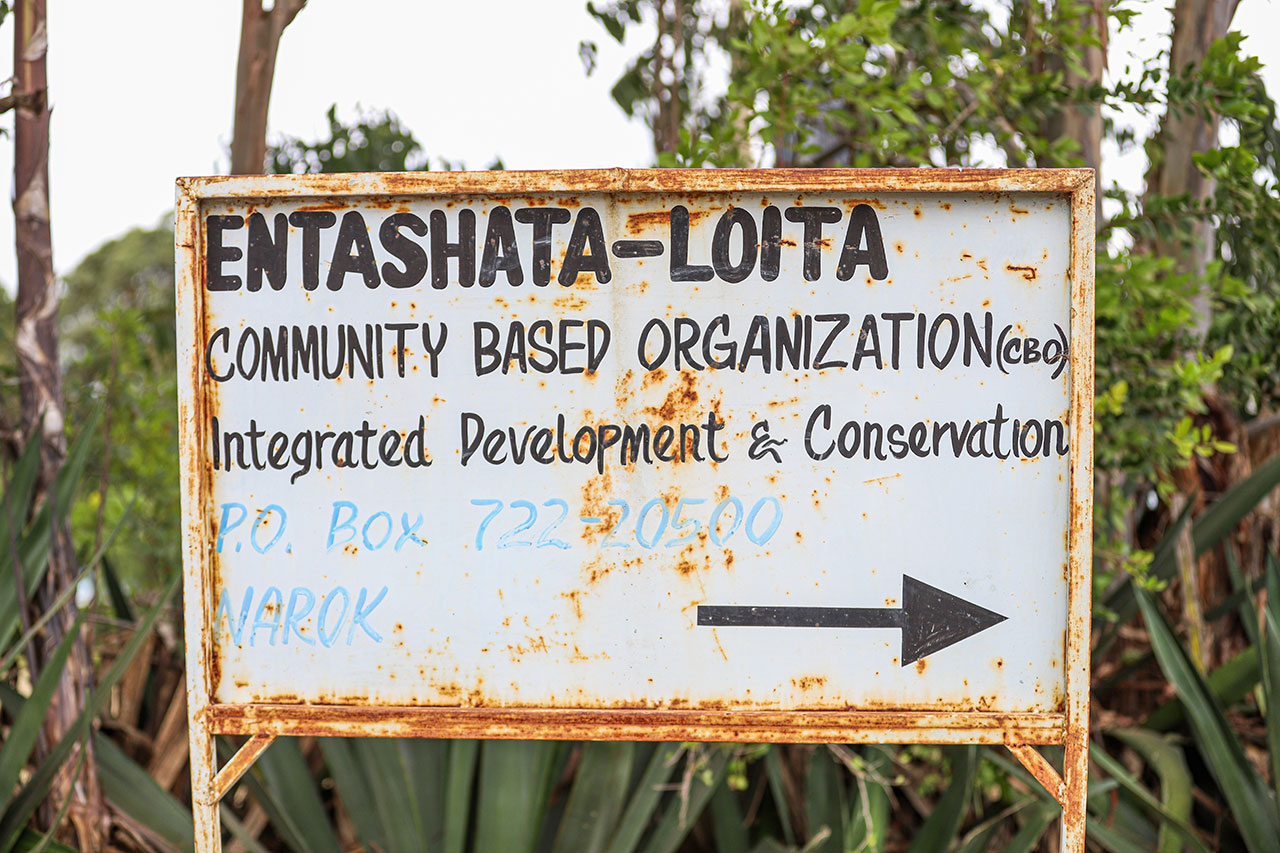
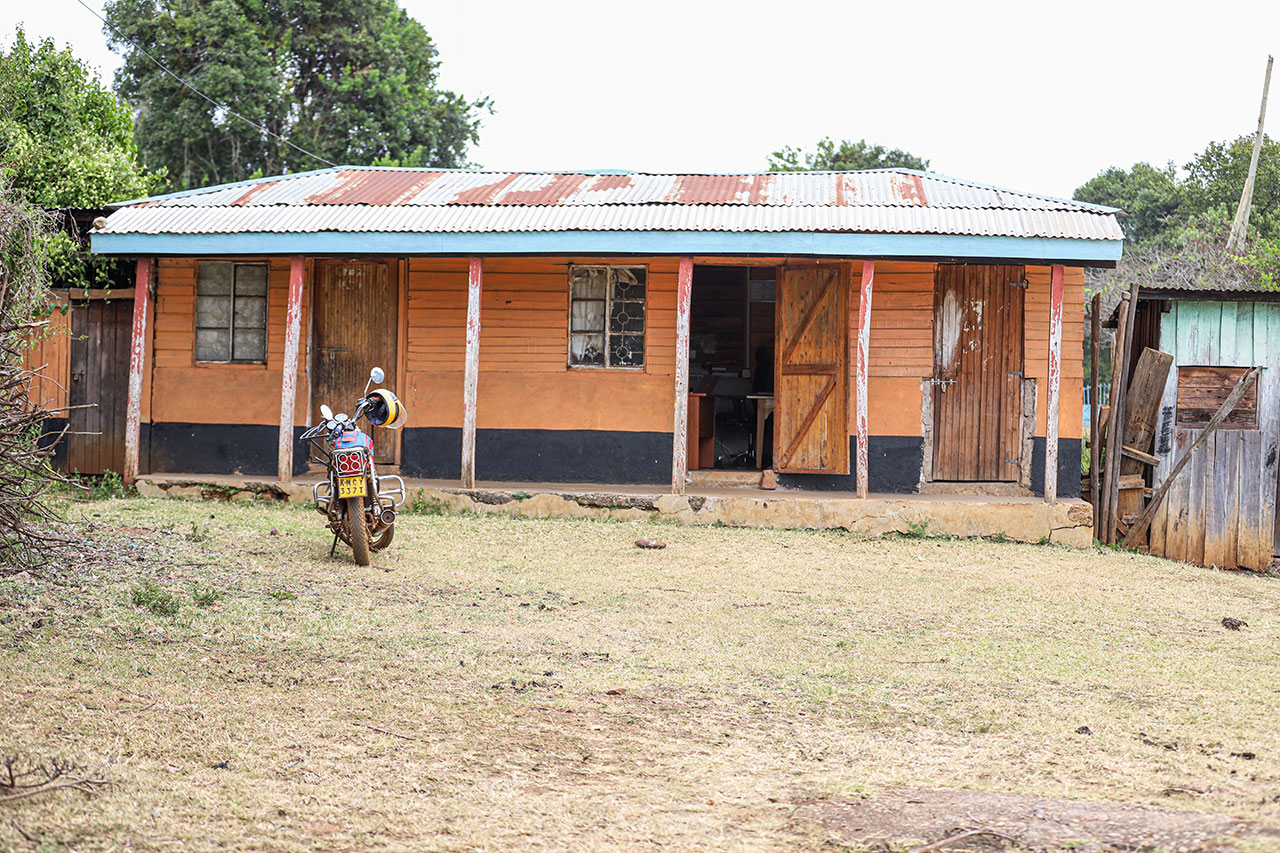
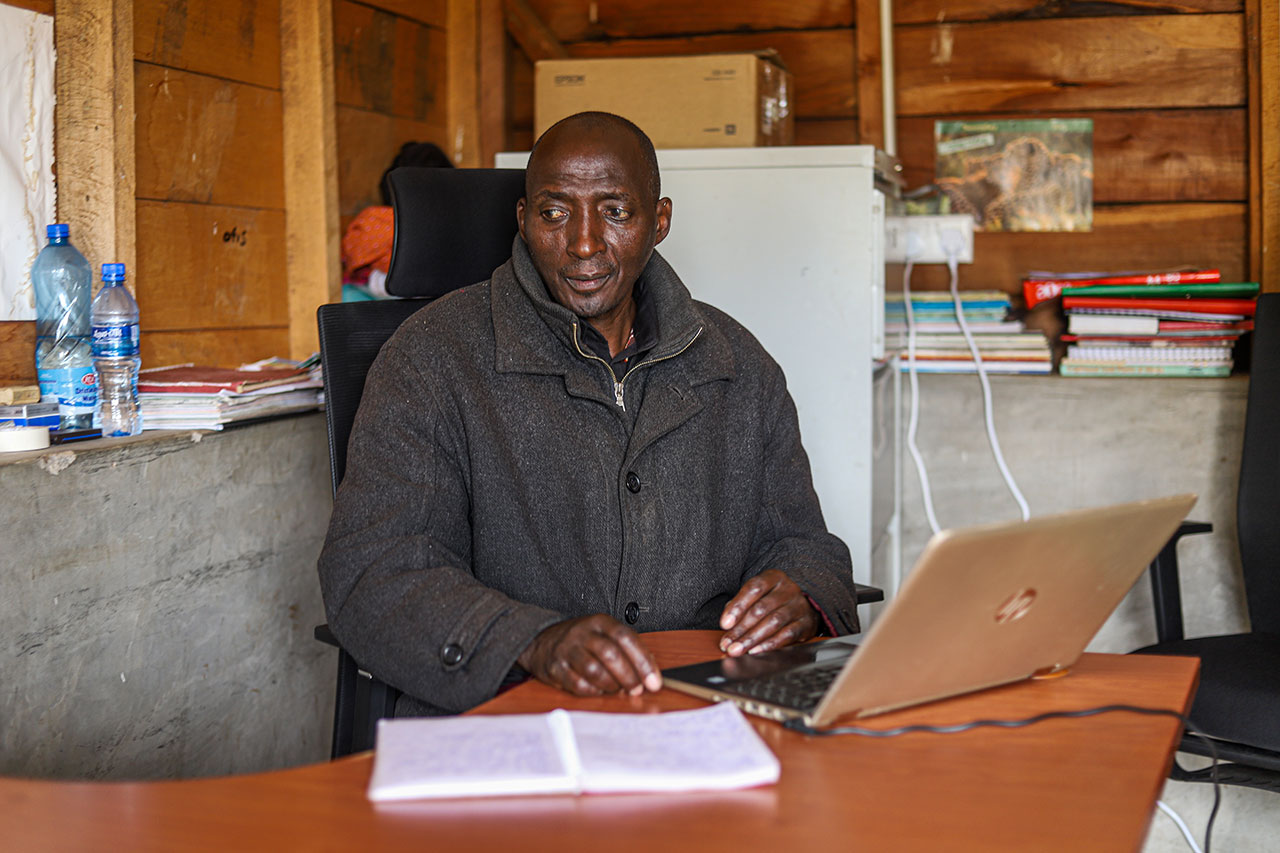
Thanks to Entashata’s partnership with Ipas, Simpano adds that in the last year, the organization has grown exponentially in its ability to mobilize resources, harness its networks, engage the community and stakeholders, and strengthen its board of directors.
Another success: Through networking forums facilitated by Ipas, Entashata helped establish the Mashinani Reproductive Health Network Kenya, connecting with 20 organizations that do similar work. “Ipas has created more impact than any other partner,” Simpano says. “Our profile has been elevated, and we currently chair the Mashinani Reproductive Health Network.”
organizations connected through the Mashinani Reproductive Health Network Kenya that is chaired by Entashata
What’s next for Entashata?
Entashata will use its 2024 Collaborative Fund grant on a 10-month project supported by Ipas Africa Alliance, which aims to strengthen its existing work on sexual and gender-based violence and climate change within the community.
As Simpano looks to the future, he emphasizes the urgent needs of his nomadic community in adapting to climate change and exploring new avenues for sustainable livelihoods—all while upholding women’s rights.
Challenges persist, particularly in overcoming cultural resistance to the goal of gender equity. Simpano says some of his family members initially resisted embracing his vision of upholding the rights of girls and women. However, with time, they warmed up to his ideas. He’s hoping that trend continues.


